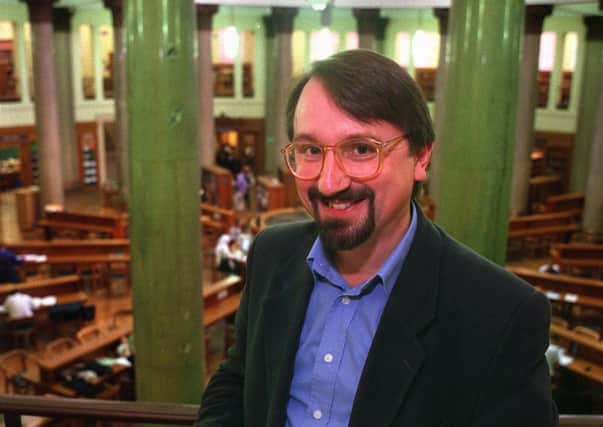Project should shed light on overshadowed playwright


A University of Leeds literary historian is embarking on a major project to shed light on an influential but neglected contemporary of Shakespeare.
Playwright John Marston (1576-1634) was one of the most important playwrights of the early modern period, considered an equal in significance to well-known dramatists such as John Webster, Thomas Middleton and John Ford.
Advertisement
Hide AdAdvertisement
Hide AdIf you intend Googling ‘John Marston’, though, you may have to be more specific as he also has a more contemporary namesake, who is the central character in a computer game called Red Dead Redemption. It’s not him.
Described as a confrontational and often controversial satirist, Marston wrote a dozen surviving plays, including The Malcontent and The Dutch Courtesan, as well as two volumes of verse, his style dubbed ‘energetic and often obscure.’
But this lawyer’s son, who belonged to the sophisticated cultural world of London’s Inns of Court, disappeared from literary life at the height of his success and became a church minister – leaving almost no clues to explain his abrupt change of career.
Now Martin Butler, Professor of Renaissance Drama in Leeds’ School of English, whose first book, Theatre and Crisis 1632-1642, explored the politics of the English stage in the pre-Civil War years, is heading a five-year international project to create the first complete critical edition of Marston’s works, for Oxford University Press. Professor Matthew Steggle, from Sheffield Hallam University, is co-investigator. The project has been awarded £715,622 by the Arts and Humanities Research Council.
Advertisement
Hide AdAdvertisement
Hide AdProfessor Butler, who has a special interest in the ‘court masque’, as a form in which literature and politics “intersect in telling ways” (The Stuart Court Masque and Political Culture was published by Cambridge University Press in 2008), said: “Marston was an original and idiosyncratic voice. He competed or collaborated with the most important writers of his time, including William Shakespeare and Ben Jonson, and the impact of his highly distinctive style can be seen in the turn towards a more satirical and aesthetically self-conscious mode of writing English drama after 1600.”
Marston’s works have never been properly edited as a body – the last collected edition in the 1930s is incomplete, its textual work unreliable, and its scholarship long out of date.
“The new edition will bring together all Marston’s poems and plays for the first time and will scrutinise exhaustively the many early printed editions and the handful of manuscripts in which his works survive,” said Professor Butler, who has also edited a similarly comprehensive Cambridge Edition of the works of Ben Jonson, published in 2012.
“It will establish an authoritative text on critical foundations, provide up-to-date and informative introductions and commentary, and endeavour to resolve the disputes over authorship which bedevil Marston’s works.”
Advertisement
Hide AdAdvertisement
Hide AdMany of the playwright’s works came into print anonymously, or without close oversight from their author; a number are collaborations with one or more authors.
As part of the project, six plays will be forensically scrutinised to establish their provenance.
A conference focusing on Marston’s work will take place next January, while in 2017, in association with Globe Education at Shakespeare’s Globe. There will also be practical workshops at the Sam Wanamaker Playhouse, part of the Globe, in London, a candlelit archetype of an indoor Jacobean playhouse, similar to the kind for which Marston wrote.
Professor Butler said: “We are very much hoping this might be an opportunity to revive Marston’s work.”